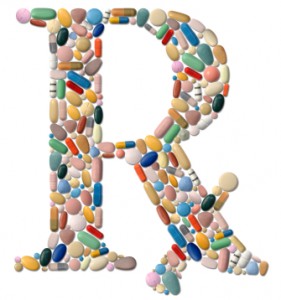 Medication nonadherence—when patients don’t take their medications as prescribed—is unfortunately fairly common, especially among patients with chronic disease. Learn eight reasons why patients don’t take their medications and ways your team can help identify and improve patients’ adherence to their medications.
Medication nonadherence—when patients don’t take their medications as prescribed—is unfortunately fairly common, especially among patients with chronic disease. Learn eight reasons why patients don’t take their medications and ways your team can help identify and improve patients’ adherence to their medications.
Patients can be reluctant to tell you that they don’t take their medicines. If you don’t have a true picture of a patient’s medication-taking behavior, you may needlessly escalate his or her treatment, resulting in potential harm to the patient, unnecessary work for the practice and increased costs overall.
Data show about one-quarter of new prescriptions are never filled, and patients do not take their medications about 50 percent of the time. Most nonadherence is intentional—patients make a rational decision not to take their medicine based on their knowledge, experience and beliefs. The top eight reasons for intentional medication nonadherence are:
- Fear. Patients may be frightened of potential side effects. They may have witnessed side effects experienced by someone else who was taking the same or a similar medication and believe the medication caused the problems.
- Cost. Patients may not fill medications in the first place or ration what they do fill to extend their supply.
- Misunderstanding. Patients may not understand the need for the medicine, the nature of the side effects or the time it will take to see results. This is particularly true for patients with chronic illness, because taking a medication every day to reduce the risk of something bad happening can be confusing. Failure to see immediate improvement may lead to premature discontinuation.
- Too many medications. The greater the number of different medicines prescribed and the higher the dosing frequency, the more likely a patient is to be nonadherent.
- Lack of symptoms. Patients who don’t feel any differently when they start or stop their medicine might see no reason to take it.
- Worry. Concerns about becoming dependent on a medicine also lead to nonadherence.
- Depression. Patients who are depressed are less likely to take their medications as prescribed.
- Mistrust. Patients may be suspicious of their doctor’s motives for prescribing certain medications because of recent news coverage of marketing efforts by pharmaceutical companies influencing physician prescribing patterns.
Fortunately, a free online module can help you address these reasons and improve medication adherence in your practice. The module, part of the AMA’s STEPS Forward collection, includes practical strategies and tools that you can immediately implement with your practice team.
The module also includes information about how to get support for intervention implementation, and it offers continuing medical education credit. More than 25 modules are expected to be available in the AMA’s STEPS Forward collection by the end of the year.
As published in the AMA Wire, by AMA staff writer Lauren Rees 10/16/15
